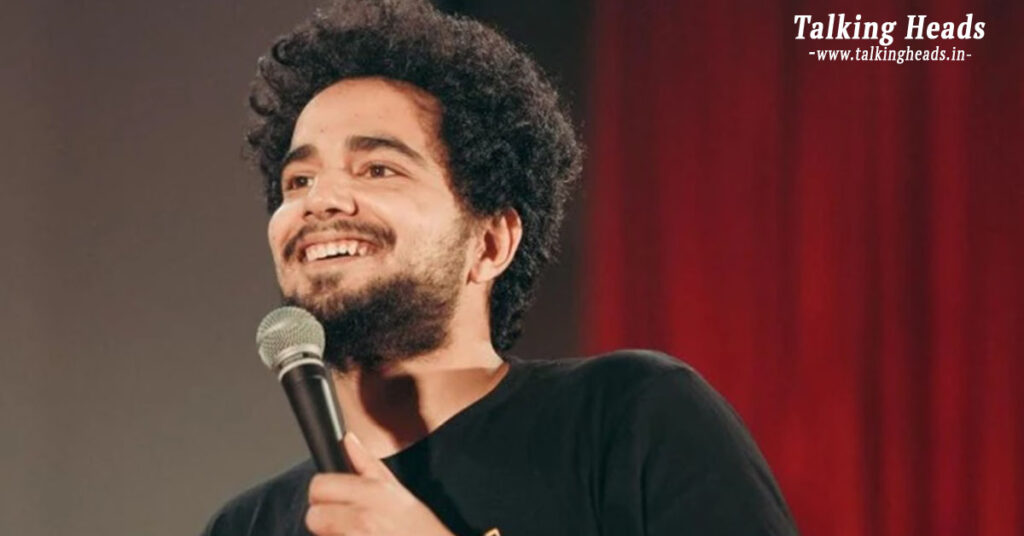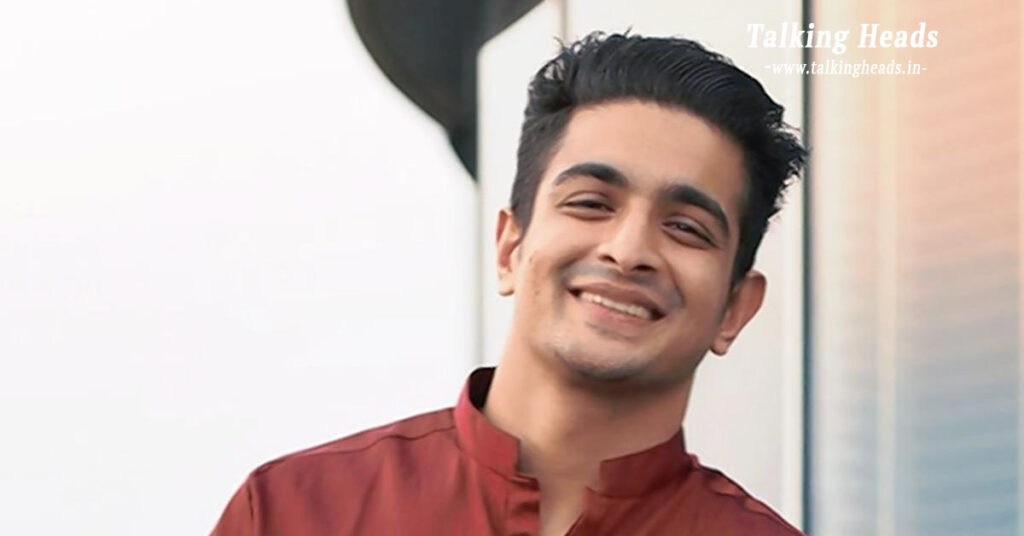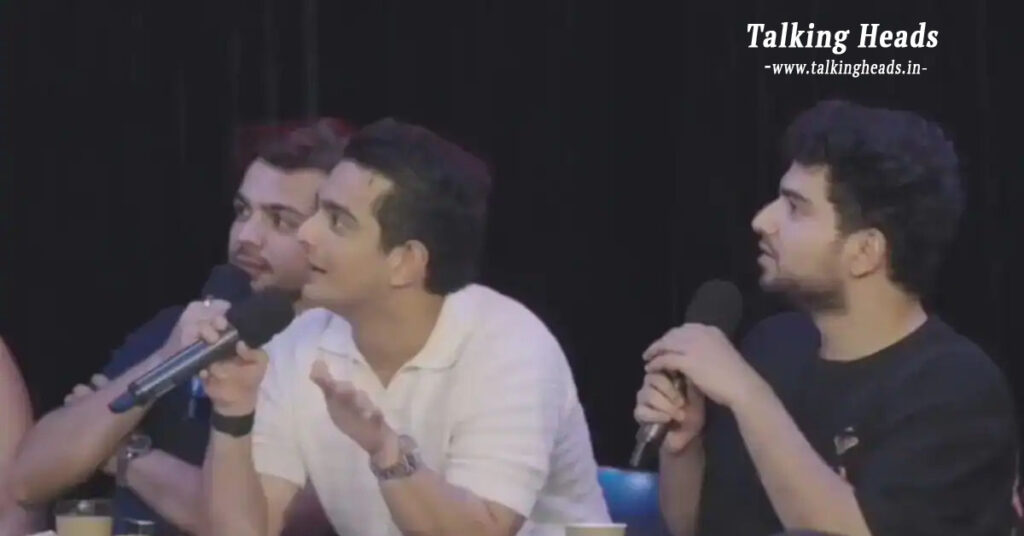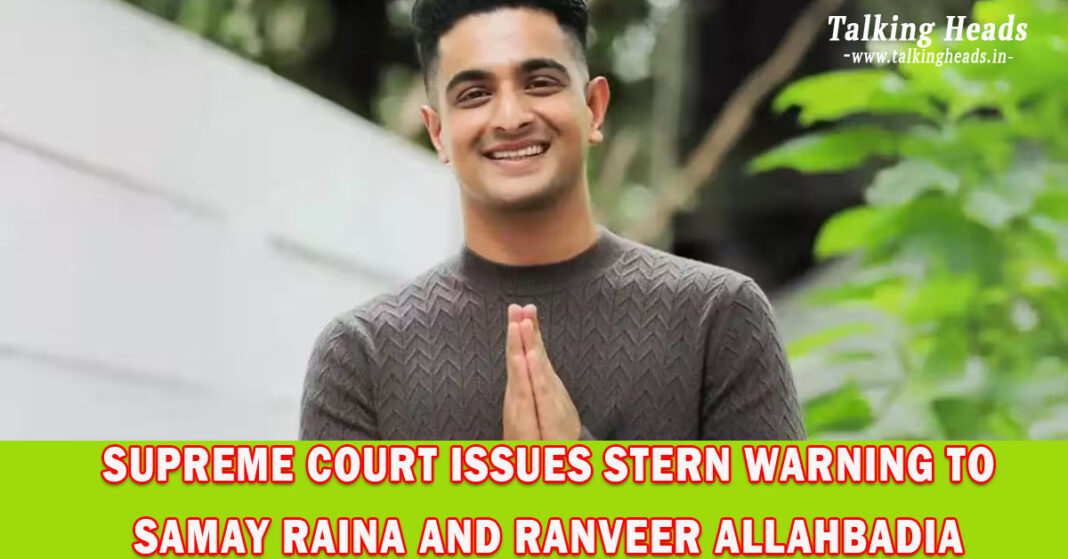The Supreme Court of India has sent a stern message to YouTubers and comedians Samay Raina and Ranveer Allahbadia amid the controversy surrounding their show India’s Got Latent. The court criticized Raina’s comments made during his performance in Canada and issued a warning to both influencers, reminding them of the boundaries of freedom of expression.
Table of Contents
Supreme Court Warns YouTubers: “Behave, or Else…”
On Monday, the Supreme Court addressed the controversy in a hearing related to Ranveer Allahbadia’s petition, making it clear that the court would not tolerate irresponsible behaviour from YouTubers. Justice Surya Kant, while addressing Allahbadia’s plea, issued a tough warning: “Behave, or else we know how to deal with you.” This stern remark was part of the ongoing legal battle that had erupted over remarks made during the India’s Got Latent episode.
The controversy intensified when comedian Samay Raina, in a light hearted moment during his show in Canada, made remarks that seemed to mock the ongoing legal proceedings. Justice Surya Kant criticized Raina, saying that “young and over smart” individuals often believe they know more than the system and don’t fully comprehend the jurisdiction of the court. This was a pointed rebuke toward Raina’s flippant comments made while performing on his Samay Raina Unfiltered tour.
Court Criticizes Samay Raina’s Remarks in Canada
Samay Raina came under fire for his comments during his performance in Canada, where he joked about the ongoing legal situation. Referring to his legal fees, Raina quipped, “Thanks for paying my lawyer’s fees,” which was met with disapproval by the court. Solicitor General Tushar Mehta highlighted that Raina had made light of serious court proceedings, further aggravating the situation.

Justice Kant responded sharply, emphasizing that such comments from individuals who don’t fully understand the legal system can have serious consequences. He made it clear that the court was watching closely and would act if necessary.
The Controversy Behind India’s Got Latent
The controversy first sparked when Ranveer Allahbadia, known for his YouTube channel BeerBiceps, made an inappropriate remark about “parental sex” during an episode of India’s Got Latent. The comment quickly became a topic of heated discussion across social media and even reached the halls of Parliament, resulting in multiple FIRs being filed against the show’s creators and participants, including Ashish Chanchlani, Jaspreet Singh, and Apoorva Mukhija.
The episode, which sparked widespread outrage, was subsequently removed from YouTube, and the creators faced intense scrutiny over the content. The backlash underscored the fine line between freedom of expression and societal responsibility, especially for public figures with large online followings.
Supreme Court Allows Ranveer Allahbadia to Resume His Show
Amid the controversy, the Supreme Court made a key decision regarding Ranveer Allahbadia’s career. The court allowed him to resume airing The Ranveer Show, following a plea in which Allahbadia argued that his videos and podcasts were his primary source of livelihood. The court’s ruling highlighted the balance between ensuring freedom of expression and maintaining public morality.

Justice Surya Kant also pointed out the need for a balanced approach to regulating digital content. The court stressed that, while the digital world provides a platform for free speech, creators must be mindful of the impact of their words on society. The court advised the central government to consider these factors carefully when drafting guidelines for digital content moving forward.
The Aftermath: Apologies and Accountability
In the wake of the controversy, both Samay Raina and Ranveer Allahbadia took steps to address the backlash. Raina, in response to the mounting criticism, deleted all episodes of India’s Got Latent from his YouTube channel. He also expressed his willingness to cooperate with authorities in the investigation. Later, Raina admitted that the situation had become overwhelming for him and assured that he had learned from the incident.
Similarly, Ranveer Allahbadia issued a public apology for his remarks, acknowledging that his comment was not only inappropriate but also unfunny. Allahbadia’s apology was seen as an attempt to mitigate the damage caused by his earlier comments and regain the trust of his audience.
The Importance of Balancing Freedom of Expression and Responsibility
The India’s Got Latent controversy highlights the complex relationship between content creators and their responsibilities to society. While the digital age has given rise to unprecedented freedom of expression, it also brings with it significant challenges. Public figures, especially those with large followings, must be cautious about the impact of their words.

The Supreme Court’s intervention serves as a reminder that the law must strike a balance between protecting freedom of speech and upholding societal norms. As the digital content landscape continues to evolve, it is crucial for creators to remain accountable for their actions and words, ensuring that their platforms remain spaces for constructive and responsible dialogue.
A Warning for Influencers and Content Creators
The Supreme Court’s recent remarks serve as a clear warning to YouTubers and other content creators, reminding them of their obligations to behave responsibly and understand the jurisdiction of the law. As the digital space grows, creators must learn to navigate the fine line between freedom and accountability to avoid future legal challenges and ensure their content remains positive and respectful. The India’s Got Latent controversy, though controversial, may serve as a turning point for how digital content is produced and regulated in India going forward.










